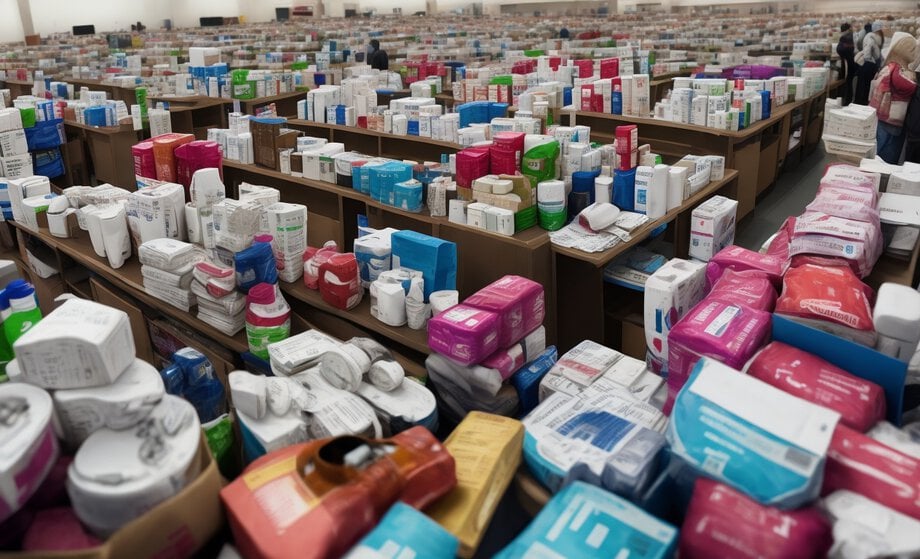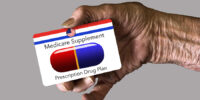Affordable Prescription Drug Coverage for Immigrants

Are you a migrant in need of affordable prescription drug coverage? Look no further! This article will guide you through the challenges you may face accessing medication and provide information on government assistance programs, non-profit organizations, and discount prescription drug cards specifically designed to help migrants like you.
You’ll also find valuable tips on navigating the healthcare system as a migrant. Don’t let high medication costs hold you back from getting the care you deserve!
Key Takeaways
- Affordable prescription drug coverage is essential for migrants to ensure access to necessary medications and manage their medical conditions.
- Language barriers and legal status limitations pose challenges for migrants in accessing medication and understanding prescription information.
- Government assistance programs such as Medicaid, Medicare Part D, SPAPs, and PAPs play a crucial role in providing affordable prescription drug coverage for migrants.
- Non-profit organizations collaborate with pharmaceutical companies and receive government support to expand medication accessibility and offer affordable options for migrants.
Importance of Prescription Drug Coverage for Immigrants
You need affordable prescription drug coverage to ensure access to necessary medications. Prescription drugs play a crucial role in managing and treating various medical conditions, and having affordable coverage ensures that individuals can obtain the medications they need without financial burden. Affordable prescription drug coverage not only improves the overall health and well-being of individuals, but it also prevents them from having to make difficult choices between their medications and other essential needs.
Having access to affordable prescription drug coverage is particularly important for individuals who desire to serve others and understand the importance of making healthcare accessible and affordable for everyone. It ensures that individuals can maintain their quality of life and continue to contribute to their communities. By prioritizing affordability in prescription drug coverage, we can ensure that everyone has equal access to necessary medications, promoting a healthier and more equitable society.
Challenges Faced by Migrants in Accessing Medication
As a migrant, you may face challenges in accessing medication due to language barriers and legal status limitations.
The language barrier can make it difficult for you to communicate your medical needs and understand the instructions on prescriptions.
Additionally, your legal status may limit your access to affordable healthcare and prescription drug coverage, making it even more challenging to obtain the medication you need.
These challenges highlight the importance of finding solutions to ensure that migrants have affordable and accessible prescription drug coverage.
Language Barrier Impact
Navigating the language barrier poses significant challenges for migrants in accessing medication, as it hinders their ability to effectively communicate with healthcare providers and understand important prescription information. This creates a barrier to receiving the necessary medications and can have serious consequences for their health.
Here are four ways in which language barriers and cultural differences impact migrants in accessing medication:
- Miscommunication: Limited language proficiency can lead to misunderstandings between migrants and healthcare providers, resulting in incorrect prescriptions or dosage instructions.
- Limited access to information: Migrants may struggle to understand important prescription information, such as side effects, drug interactions, and proper usage, due to language barriers.
- Lack of trust: Language barriers can make it difficult for migrants to establish trust with healthcare providers, leading to apprehension in seeking medical advice or following prescribed treatments.
- Cultural differences: Migrants may have different beliefs and practices regarding healthcare, which can be challenging to navigate without proper communication and understanding.
To ensure equitable access to medication, it’s essential to address these language barriers and cultural differences by providing language interpretation services, culturally sensitive healthcare practices, and educational resources tailored to migrant communities.
Legal Status Limitations?
One challenge you may face as a migrant in accessing medication is the limitation imposed by your legal status. Your legal status can often act as a barrier to healthcare, making it difficult for you to obtain the necessary medications you need.
Many countries have strict regulations and requirements for accessing prescription drugs, and if you don’t have the proper legal documentation, you may be denied access. This can have serious consequences for your health, as untreated medical conditions can worsen over time.
It’s important to advocate for policies that address these legal status challenges and healthcare barriers, ensuring that all individuals, regardless of their legal status, have access to affordable and necessary medication.
Government Assistance Programs for Migrants
You can access government assistance programs for migrants to receive affordable prescription drug coverage. These programs are designed to ensure that everyone, regardless of their legal status, has access to necessary healthcare services. Here are four ways these programs can help you:
- Medicaid: This federal and state program provides healthcare coverage to low-income individuals and families, including prescription drug coverage. Eligibility requirements vary by state, so it’s important to check with your local Medicaid office.
- Medicare Part D: If you’re 65 years or older, you may be eligible for Medicare, which includes prescription drug coverage under Part D. This program helps seniors access the medications they need at an affordable cost.
- State Pharmaceutical Assistance Programs (SPAPs): Some states offer SPAPs to provide additional assistance with prescription drug costs. These programs can help cover the cost of medications not covered by other insurance plans.
- Patient Assistance Programs (PAPs): Many pharmaceutical companies offer PAPs to provide free or discounted medications to individuals who can’t afford them. These programs can be a lifeline for those in need.
Non-Profit Organizations Providing Affordable Medication Options
Non-profit organizations play a crucial role in providing affordable medication options for migrants. Government support for these organizations enables them to expand accessibility to essential medications.
Collaborations with pharmaceutical companies further enhance their ability to offer discounted prices, ensuring that migrants can access the medications they need without financial burden.
Government Support for Nonprofits
With government support, nonprofits can provide affordable medication options for migrants. Government funding plays a crucial role in enabling non-profit organizations to carry out their mission of serving marginalized communities. Here are four ways in which government support helps nonprofits in providing affordable medication options:
- Financial Assistance: Government funding allows nonprofits to offer medication at reduced costs or even free of charge, making it accessible to those who can’t afford it otherwise.
- Research and Development: With government support, nonprofits can invest in research and development to find cost-effective alternatives to expensive medications, ensuring that migrants receive the care they need without financial burden.
- Community Outreach: Government funding helps nonprofits reach out to migrant communities, raising awareness about available medication options and providing support to those in need.
- Collaboration and Partnerships: Government support encourages collaboration between nonprofits, healthcare providers, and government agencies, fostering a network that works together to provide affordable medication options to migrants.
Government backing is essential in empowering nonprofits to make a meaningful difference in the lives of migrants, ensuring access to affordable prescription drug coverage and promoting overall well-being.
Expanding Medication Accessibility
Government support enables nonprofits to expand medication accessibility for migrants. Non-profit organizations play a crucial role in providing affordable medication options to those in need, ensuring medication affordability and healthcare accessibility.
These organizations work tirelessly to bridge the gap between migrants and necessary medications, recognizing the importance of accessible healthcare for all individuals. By leveraging government support, nonprofits can negotiate with pharmaceutical companies to secure discounted prices on medications, making them more affordable and accessible to migrants.
Additionally, these organizations collaborate with healthcare providers to streamline the process of obtaining prescriptions and refills, minimizing any barriers that migrants may face.
Through their dedication and commitment, non-profit organizations are able to improve the lives of migrants by ensuring they’ve access to the medication they need at an affordable cost.
Collaborations With Pharmaceutical Companies
Through collaborative efforts with pharmaceutical companies, you can ensure affordable medication options for migrants. By establishing strong pharmaceutical partnerships and research collaborations, non-profit organizations can provide access to necessary medications at lower costs.
Here are four ways in which these collaborations can benefit migrants:
- Cost Reduction: Pharmaceutical partnerships allow for negotiations on drug prices, resulting in significant cost savings for migrants.
- Expanded Availability: Through research collaborations, non-profit organizations can work with pharmaceutical companies to develop generic versions of essential medications, increasing their availability and affordability.
- Patient Assistance Programs: Pharmaceutical companies often offer patient assistance programs that provide free or discounted medications to individuals who can’t afford them.
- Advocacy and Education: Collaborations can also promote advocacy efforts to increase awareness about migrant health issues and the importance of affordable medication options.
Discount Prescription Drug Cards for Migrants
Save money on your prescription medications with discount drug cards designed for migrants.
As a migrant, finding affordable healthcare options can be challenging, but discount prescription drug options can help alleviate some of the financial burden.
These cards provide significant discounts on a wide range of medications, ensuring that you can access the medications you need without breaking the bank.
By presenting your discount drug card at participating pharmacies, you can enjoy savings of up to 80% on both brand-name and generic medications. This means that you can receive the treatment you require without sacrificing your financial stability.
These discount drug cards are specifically designed to assist migrants in accessing affordable healthcare, making it easier for you to prioritize your well-being.
Take advantage of these discount drug cards and save on your prescription medications today.
Maximize your healthcare options as a migrant by utilizing these practical tips for navigating the system effectively.
- Research healthcare resources: Familiarize yourself with the available healthcare services in your area. Look for community clinics, free or low-cost healthcare programs, and organizations that provide assistance to migrants.
- Seek language assistance: Overcoming cultural barriers can be challenging, especially when it comes to communicating your healthcare needs. Utilize translation services or find healthcare providers who speak your language to ensure clear and effective communication.
- Educate yourself: Take the time to understand the healthcare system in your new country. Learn about insurance options, eligibility criteria, and the process for accessing healthcare services. This knowledge will empower you to make informed decisions about your healthcare.
- Build a support network: Reach out to local migrant organizations, community groups, or support networks to connect with others who’ve navigated the healthcare system. They can provide guidance, share experiences, and offer valuable insights to help you navigate the system more effectively.
Frequently Asked Questions
What Are the Specific Eligibility Requirements for Government Assistance Programs for Migrants?
To find out if you’re eligible for government assistance programs, you need to meet specific requirements. These programs aim to provide support to migrants, ensuring they have access to the help they need.
Are There Any Restrictions on the Types of Medications That Can Be Accessed Through Non-Profit Organizations?
There may be some restrictions on the types of medications you can access through non-profit organizations. It’s important to check with the specific organization to see what medications they offer and if there are any limitations.
How Do Discount Prescription Drug Cards for Migrants Work and How Can They Be Obtained?
To obtain discount prescription drug cards, you can research organizations that offer them. These cards work by providing discounted prices on medications. Look for programs that specifically cater to migrants, as they may have additional resources available.
Are There Any Limitations on the Number of Times a Migrant Can Access Government Assistance Programs for Medication?
There may be limitations on how many times you can access government assistance programs for medication. It’s important to understand the frequency of assistance and any restrictions that may apply.
When navigating the healthcare system, you may face challenges like language barriers and a lack of knowledge about available resources. These obstacles can make it difficult to access the care and prescription drug coverage you need.








